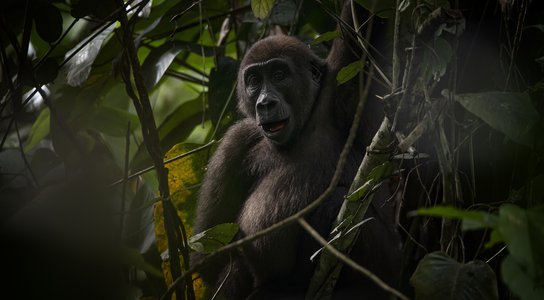Governments from across the European Union today adopted a historic new law which will ensure that a raft of commodities linked to deforestation and forest degradation won’t be able to enter the EU market unless proven to be sustainably sourced.
The green light from EU national governments means that by end of next year, imports of palm oil, cattle, soy, coffee, cocoa, timber and rubber will have to comply with strict traceability obligations and evidence must show that they have not been grown on deforested or degraded land.
It’s the first law of its kind in the world, and a historic blueprint for the approaches that other markets should look at to help preserve the world’s forests - which are essential in the fight against climate breakdown and biodiversity loss.
Now the first milestone towards deforestation-free supply chains has been achieved, it’s time to ensure that the European Union can fully end its role in forest destruction – which means cutting the money pipeline to deforesting businesses. This is the final piece of the puzzle.
For all its merits, the new law does not oblige EU-based banks or investors to stop funding deforestation through its investment portfolios and via financial services. And unfortunately, they remain key backers of the deforestation crisis and related human rights violations, as our investigations show.
In 2021, we analysed more than 70,000 deals struck between agribusinesses and financiers headquartered in the EU, UK, US and China. Our report Deforestation Dividends reveals that between 2016 and 2020, lenders and investors based in the EU invested almost €30.6 billion worth of deals with 20 agribusinesses accused of deforestation and generated an estimated €401 million of profits from these deals.
More recently, our investigation Cash, Cattle and the Gran Chaco showed how major European financiers headquartered in France, Spain and The Netherlands are still holding substantial shares in or provided financial services to meatpacking giants Minerva and Frigorifico Concepción, who have been accused of links to deforestation in the Chaco region of Paraguay – accusations they deny. For instance, the Spanish bank Santander increased its holdings in Minerva by a staggering 1,000% in the last two years.
These numbers show deforestation remains a profitable business for European financial institutions, despite increasing calls to prevent biodiversity losses – including forest clearance - that threaten financial stability.
What the law does do, however, is oblige the European Commission to review the role of the EU financial sector in preventing the funding of deforestation within the next two years, and to assess the need to for any new laws to make this a legal obligation.
Under existing EU laws, financiers are not currently obliged to stop investments which fund deforestation activities: banks and investors are only legally compelled to shift their money if they run the risk of financial loss or regulatory action. The only way to fix it is to bring about rules to oblige financiers to carry out thorough due diligence to ensure their portfolios are deforestation-free.
We will continue to pressure the European Commission to meet the commitments made in the law and to come out with measures to prevent the bankrolling of deforestation as soon as possible.
With the overwhelming body of evidence suggesting an urgent need to extend or create regulation to cover financial institutions, the question is not about whether it is possible, but how long the world’s forests can wait before the money pipeline is cut off.


